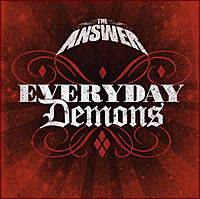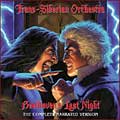#
# XML_node.objet
#
# This object is an XML node representation
#
# /- name (string)
# xml_node --- attributes (array)
# \- children (array) or value (string)
class xml_node {
var $name;
var $attributes = array();
var $children = array();
var $value = "";
function xml_node($name,$attributes,$children=array(),$value="") {
$this->name = $name;
if (is_array($attributes)) {
$this->attributes = $attributes;
}
$this->children = $children;
$this->value = $value;
}
}
#
# xml_tree class
#
# This object parses an XML stream and offers a tree composed by xml_nodes
#
class xml_tree {
var $xml_stream;
var $current_node;
var $root_node;
var $index;
var $value;
function xml_tree() {
$this->root_node = new xml_node("__ROOT_NODE",array());
$this->current_node = $this->root_node;
}
function add_tree($xml_stream) {
# Managing the parser
$this->xml_stream = $xml_stream;
$xml_parser = xml_parser_create();
xml_parser_set_option($xml_parser,XML_OPTION_CASE_FOLDING,0);
xml_parser_set_option($xml_parser,XML_OPTION_SKIP_WHITE,1);
if (!xml_parse_into_struct($xml_parser,$this->xml_stream,$this->value,$this->index)) {
xml_parser_free($xml_parser);
die("XML Parse error");
}
xml_parser_free($xml_parser);
# Now, $this->value and $this->index are informed, we can use the get_node methode.
$tab_result = $this->get_node(0,count($this->value) - 1);
$this->root_node->children[] = $tab_result[0];
$this->current_node = $this->root_node;
}
function get_node($index_start,$index_stop) {
#echo "
\n";
#echo "GET-NODE($index_start,$index_stop)
\n";
# What we are going to return is an array of xml_nodes
$return_tab = array();
# depth is only here to check if everything is all right
$tab_node = $this->value[$index_start];
$depth = $tab_node["level"]-1;
# Now we have to be sure we do not forget a single node
for ($index = $index_start;$index <= $index_stop;$index++) {
#echo "\$index = $index
";
# get the current node
$tab_node = $this->value[$index];
# what type of node is it ?
switch($tab_node["type"]) {
case "complete" :
# Depth integrity check
if ($tab_node["level"] != $depth+1) {
die("ERREUR # contrainte d'intégrité au noeud complet $index, niveau $depth + 1 au lieu de ".$tab_node["level"]);
}
#echo "Noeud complet trouvé position $index TAG ".$tab_node["tag"]."
\n";
# Easy one, no children to manage, only a value...
$return_tab[] = new xml_node($tab_node["tag"],$tab_node["attributes"],"",$tab_node["value"]);
break;
case "open" :
# Depth integrity check
if ($tab_node["level"] != $depth +1 ) {
die("ERREUR # contrainte d'intégrité au noeud ouvert $index, niveau $depth au lieu de ".$tab_node["level"]);
}
# Open tag, we re-use this methode to return its children
# Where is the correspondong close tag ?
$node_index = $this->index[$tab_node["tag"]];
$flipped_node_index = array_flip($node_index);
#echo "This ".$tab_node["tag"]." is at coords ".$flipped_node_index[$index]."
";
$i=1;
do {
$next_index = $node_index[$flipped_node_index[$index] + $i++];
$next_tag=$this->value[$next_index];
}
while ($next_tag["level"]!=$tab_node["level"]);
#echo "Ouverture de noeud détectée pos $index TAG ".$tab_node["tag"]."
\n Parcours jusqu au $next_index
\n";
# good, we can now instanciate our node
$return_tab[] = new xml_node($tab_node["tag"],$tab_node["attributes"],$this->get_node($index+1,$next_index),"");
# As we called the get_node methode, we are sure that nodes have been parsed to the corresponding close tag
$index = $next_index;
break;
case "close" :
# Depth integrity check
if ($tab_node["level"] != $depth ){
die("ERREUR # contrainte d'intégrité au noeud fermé $index, niveau $depth au lieu de ".$tab_node["level"]);
}
#echo "Fermeture de noeud detectée pos $index TAG ".$tab_node["tag"]."
\n";
# This ugly thing is useless because reaching a close tag means that $index==$index_stop but who knows ? =)
# it will be skipped soon
$index = $index_stop;
break;
default:
die("Erreur de type de TAG non déterminé :'".$tab_node["type"]."'");
}
}
# We are out ... returns the array with collected children...
return ($return_tab);
}
# this function browse the xml tree and set the current node to the selected node
function give_node($path) {
if ($path[0]=="/") {
$current_node=$this->root_node;
$path=substr($path,1);
#echo "ABSOLUTE PATH GIVEN=$path
";
}
else {
$current_node = $this->current_node;
}
#echo "PATH GIVEN=$path
";
$tab_path = split("/",$path);
foreach ($tab_path as $node_expr) {
#echo "STUDYING EXPR='$node_expr'
";
$node = $current_node;
$expr_tab = split("\?",$node_expr);
$node_name = $expr_tab[0];
$attr_tab = 0;
if (count($expr_tab)>1) {
##echo "TROUVE AU MOINS UNE CONDITION SUR LES ATTRIBUTS...
";
$attr_expr_tab=split(",",$expr_tab[1]);
$attr_tab=array();
foreach($attr_expr_tab as $attr_expr) {
$attr_split_expr=split("=",$attr_expr);
$attr_tab[$attr_split_expr[0]]=$attr_split_expr[1];
}
}
$last=0;
foreach ($node->children as $children) {
#echo "COMPARING WITH '$children->name'
";
if ($children->name == $node_name) {
##echo "TROUVE NOEUD CORRESPONDANT $node_name
";
if (is_array($attr_tab)) {
$node_attributes = $children->attributes;
foreach ($attr_tab as $key=>$value) {
if ($node_attributes[$key] == $value) {
#echo "ATTRIBUTE & CHANGE CURRENT NODE TO ".$children->name."
";
$current_node = $children;
$last = 1;
}
}
}
else {
##echo "CHILD=".$children->name."
";
#echo "CHANGE CURRENT NODE TO ".$children->name."
";
$current_node = $children;
$last=1;
}
}
if ($last) {
break;
}
}
if (!$last) {
#echo "PATH ERROR $node_name
";
#die("MMmmmh It seems that this file is not a DIA XML format...sorry...");
return 0;
}
}
return $current_node;
}
function browse_tree($path) {
$node = $this->give_node($path);
if (is_object($node)) {
$this->current_node = $node;
return 1;
}
return 0;
}
# this method dumps an html representation of the xml tree
function xml_show($node = "",$level=0,$last=0) {
if ($node=="") {
$node=$this->root_node;
}
if (!is_object($node)) {
die("ERROR : node is not an object");
}
$line="";
for($i=1;$i<=$level;$i++) {
if ((i==$level-1) and ($last)) {
$line.=" ";
}
else {
$line.=" |";
}
if ($i==$level) {
$line.="`-";
}
}
$line.=$node->name;
#echo $line;
$line.="".count($node->children)."";
if (count($node->children)==1) {
$line.=" (".$node->value.")
\n";
echo "$line";
}
else {
$line.="
\n";
echo "$line";
$i=1;
foreach($node->children as $children) {
if ($i==count($node->children)) {
$this->xml_show($children,$level+1,1);
}
else {
$this->xml_show($children,$level+1);
}
$i++;
}
}
}
#END_CLASS
}
THE ANSWER (ie) - Everyday Demons (2009)

Label : SPV / Wagram
Sortie du Scud : 2 mars 2009
Pays : Irlande
Genre : Hard Rock typé 70's
Type : Album
Playtime : 11 Titres - 47 Mins
Un soir de concert, au Zénith … Nous attendons sagement le grand Rob et ses quatre compères du PRIEST. Je taille le bout de gras avec mon voisin de droite, un gars adorable qui est venu de Reims pour voir Halford et consorts. Malgré l’âge qui nous sépare (une quinzaine d’années ?), nous partageons visiblement un goût immodéré pour le Hard et le Metal des années 70 et 80. Au milieu de cette passionnante conversation, nous évoquons forcément AC/DC : c’est là qu’il me parle de ce petit groupe qui a tout enflammé en première partie de la bande à Angus.
Décidément, me dis-je, il est grand temps de se pencher sur le cas de THE ANSWER. Car ce n’est pas la première fois que j’entends parler en bien de ce combo irlandais. Les Cormac Neeson (chant), Paul Mahon (guitare), Micky Waters (basse) et James Heatley (batterie) possèdent déjà une solide réputation scénique, et leur premier album Rise (2006) a été unanimement salué par la critique. Leur reprise du « Sweet Emotion » d’AEROSMITH n’est pas passée inaperçue, et même le grand Paul Rodgers (ex-FREE, QUEEN) a pris plaisir à taper le bœuf avec eux sur « The Hunter » et « I’m A Mover ».
Maintenant, si on prend un peu de recul par rapport au « phénomène THE ANSWER », certains éléments mettent la puce à l’oreille. Voilà un groupe qui ouvre pour AC/DC ou DEEP PURPLE avec seulement un album au compteur, le moins que l’on puisse dire c’est que le label et le management de THE ANSWER savent y faire. Si je vous parle des Albert Productions, ça devrait vous faire penser à quelque chose … THE ANSWER doit aussi grandement sa notoriété à la présence du titre « Never Too Late » sur le jeu vidéo Guitar Hero World Tour. Tout ça pour vous dire que l’engouement auquel on assiste depuis quelques mois à propos de ce groupe doit quand même laisser place à un minimum d’objectivité. Arrive donc ce second album, Everyday Demons, qui nous en apprend un peu plus sur THE ANSWER …
Premier constat d’entrée : il n’y a pas de tromperie sur la marchandise, les nostalgiques du Rock le plus Hard des années 70 seront comblés. Ici la guitare et la basse ne se contentent pas de jouer une rythmique identique et stéréotypée, non, c’est la chaleur des premiers amplis électriques qui se dégage du jeu de Paul Mahon, tandis que la basse de Micky Waters possède sa propre identité, elle chante, danse, complète les harmonies et se distingue aisément au milieu d’une production parfaite. Le frontman Cormac Neeson, chanteur d’une autre époque bénie des Dieux du Rock, navigue entre émotions Soul et attitudes plus « bad boy ». Une sorte de fils spirituel de Roger Daltrey (THE WHO) ou Robert Plant (LED ZEP’). Quant à Heatley, il apporte tantôt la finesse, tantôt la lourdeur dont THE ANSWER a besoin.
A eux quatre, ces Irlandais incarnent le croisement idéal entre le Rock britannique (CREAM ? FREE ? THE WHO ?) et le Rock américain (MOUNTAIN ? GRATEFUL DEAD ?), ou une piqûre de rappel essentielle à quiconque veut comprendre les fondements du Hard Rock.
En revanche, là où se situe la grosse différence avec les groupes mythiques cités ci-dessus, qui enchaînèrent albums cultes et morceaux de légende, c’est que ce Everyday Demons manque singulièrement de passages plus marquants. Même après plusieurs écoutes il s’avère difficile de faire ressortir un morceau plus qu’un autre (« Demon Eyes » ? « Why’d You Change Your Mind » ?). C’est bien produit, c’est très bien joué, la sincérité se ressent fortement … Mais il y a fort à parier que le style « revival » de THE ANSWER constitue la véritable raison de cet intérêt médiatique très soutenu, plutôt que 11 compos qui s’écoutent gentiment sans toutefois déchaîner les passions.
Ajouté : Mercredi 08 Avril 2009
Chroniqueur : NicoTheSpur
Score :    
Lien en relation: The Answer Website
Hits: 12001
|













